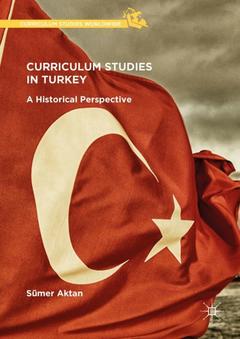Description
Curriculum Studies in Turkey, 1st ed. 2018
A Historical Perspective
Curriculum Studies Worldwide Series
Author: Aktan Sümer
Language: English
Subject for Curriculum Studies in Turkey:
Approximative price 121.31 €
In Print (Delivery period: 15 days).
Add to cartSupport: Print on demand
Description
/li>Contents
/li>Biography
/li>Comment
/li>
Provides a foundational overview of curriculum studies in Turkey
Engages with current scholarship and recent trends in curriculum theory with an emphasis on curriculum as an organizational, institutional, and bureaucratic centerpiece of education
Includes up-to-date examples in accordance with the current-day international curriculum studies paradigm

